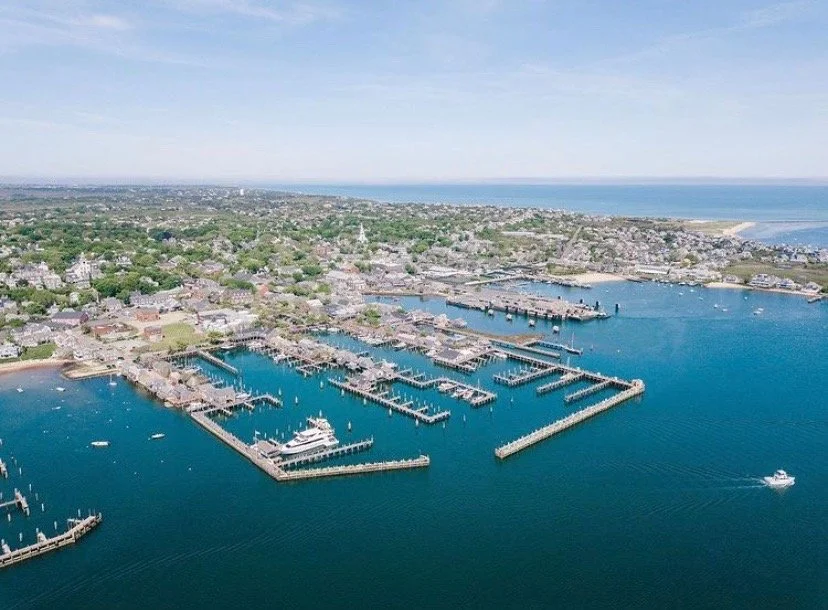Water Testing On Nantucket
The case for an on-island water testing lab.
Nantucket is not the quiet little island it was back in the 70s. According to the US census, we have grown from a population of around 3,500 people to 14,200 year-round (and this is likely an undercount). And our 2021 summer population has been estimated to be 50,000 people. Maybe more. Unfortunately, with this increase in human activity, the island has seen a decrease in water quality. Clearly (pun intended), the testing of drinking water and water used for recreation in our harbors, at our beaches, and in our ponds has become vitally important.
Last month, The Nantucket Owner's Manual, in collaboration with the Nantucket Shellfish Association and the Nantucket Land Council, launched a white paper that explores the possibility of establishing a state-certified water testing lab on Nantucket. The argument for doing so is compelling.
Executive summary
Currently, most of the water samples that are collected on the island are shipped to labs on the Cape or elsewhere for testing. These include samples of public drinking water, wastewater, landfill runoff, beaches, and other natural resources, shellfish beds, ponds, pools, golf courses, private water wells, and private septic systems. This practice made sense when the island only needed to process a thousand or so samples each year. But currently, we are testing around 20,000 samples annually and the time, manpower, and cost to do this (along with a heightened awareness of contaminants like PFAS) have made the establishment of an on-island water lab worth considering.
Several contributors to this white paper cite convenience and time savings as the number one reason to look at establishing a lab here. When getting results in minutes rather than hours or days matters, testing on-island removes the uncertainty and delays associated with shipping via boats in changeable weather.
Another reason an on-island lab makes sense: we currently only sample a handful of shellfish beds and beaches due to the logistics and time of shipping samples off-island. With an on-island lab, it is feasible that we can sample all critical areas of the island and have a clear, evolving picture of the state of water quality here. From good data flows better decisions.
It is unclear whether a lab on-island can save a significant amount of money over using established labs on the mainland, but some estimates show that a lab could recover equipment costs in less than ten years.
The Wannacomet Water Company, which is set up as an enterprise fund by the town, already collects fees for water and sewer usage and can also collect payments for private testing, which would allow a new lab to serve as an additional profit center for the town. And there is a need. According to the white paper, there is an estimated pent-up demand for an additional 3,000+ paid tests each year from:
• Homeowners who have put off water testing because the process was too expensive or too complicated.
• Non-profits like the Nantucket Shellfish Association, the Nantucket Land Council, and the Nantucket Conservation Foundation who conduct regular water testing.
• Local businesses involved in water recreation, pool maintenance, or soil testing.
• Town departments that require occasional testing but not enough to warrant a contract with an outside lab, such as the Nantucket Police Department.
Despite the positive picture this white paper paints for the establishment of a new lab here, there are also some sizable hurdles to overcome. The town has many capital programs underway and several large projects are currently being considered or funded which would push a new lab to the back burner. In addition, there is a talent vacuum on-island created by a scarcity of year-round housing affecting both the private and public sectors. This means hiring, paying, and housing a qualified lab director, as well as skilled lab technicians, will be a dicey proposition.
The potential time horizon for a new lab.
From the perspective of the Nantucket Shellfish Association, a new on-island lab can't come soon enough. And the renewed interest sparked by this White Paper from the Nantucket Owner's Manual is a welcomed development. Here are some potential scenarios for how a new lab might come together and the time it may take before it can process its first sample:
1. Shortest time horizon: if the Select Board decides to include a plan for a water testing facility among the articles they sponsor for the 2022 Annual Town Meeting (or if there is a citizen's article with overwhelming support by elected officials and town administration) we could see a lab established as early as Fall of 2022.
2. Medium time horizon: If a public-private partnership is formed to tackle this issue, we could potentially see a lab created without the need for town funding, but with the full support of the town. This may take 18-24 months before a new lab could open.
3. Long time horizon: If the Wastewater Department for the town includes a new lab in an existing plan for an expanded facility we may see a new lab included on the warrant for the 2024 Annual Town Meeting and a lab built as early as 2025.
4. Longest time horizon: As the town continues to discuss plans to bring the sewer system to the west end of the island, adding the cost of a new lab to the cost of that costly capital project would be worthwhile. But no tangible timeline currently exists for this project.
As support for a new water lab increases, the likelihood of it coming to fruition improves. The Nantucket Shellfish Association vows to continue to shine a light on this idea in the coming months. That's because water quality means everything to commercial and recreation shellfishing on Nantucket. Our mission demands it.
By Grant Sanders, The Nantucket Owner’s Manual
About The Nantucket Owner's Manual:
Launched in August, The Nantucket Owner's Manual publishes reliable, trusted information for people who love and care about Nantucket, so they can better understand their role in its continued sustainability as both a community and a destination. The organization is not ad-supported and is instead dependent upon the support of the community through Patreon similar to how Public Broadcasting or Consumer Reports are funded. NOM welcomes your involvement.


